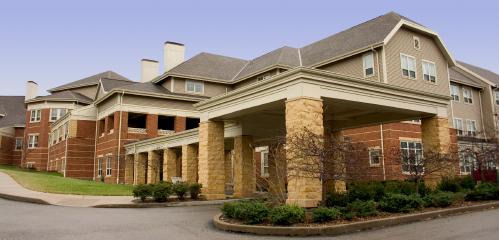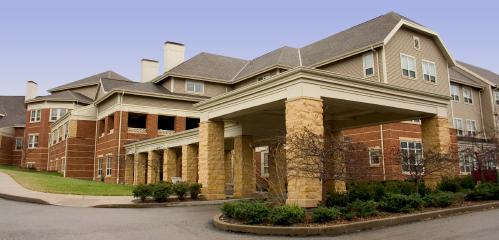Care Home Catering Insurance: Food Service & Kitchen Coverage
Food service operations in care homes present unique challenges and significant liability exposure, as residents depend on safe, nutritious meals while having specific dietary requirements, swallowing difficulties, and heightened vulnerability to foodborne illness. Care home catering insurance provides essential protection against food safety incidents, kitchen accidents, equipment failures, and regulatory compliance issues, while supporting robust food safety management systems and professional catering operations that prioritize resident health, safety, and nutritional wellbeing.
Understanding Care Home Catering Risks
Care home food service operations face unique challenges that create significant liability exposure:
- Vulnerable Residents: Elderly residents with compromised immune systems and health conditions
- Dietary Requirements: Complex nutritional needs and medical dietary restrictions
- Swallowing Difficulties: Dysphagia and texture-modified diets requiring specialized preparation
- Food Safety Risks: Higher consequences of foodborne illness in vulnerable populations
- Kitchen Operations: Commercial kitchen equipment and high-volume food preparation
- Regulatory Compliance: Strict food safety and hygiene rating requirements
Types of Food Service Risks and Exposures
Food Safety and Hygiene Incidents
Risks related to food safety and contamination:
- Foodborne illness outbreaks and contamination
- Cross-contamination and allergen exposure
- Temperature control failures and food spoilage
- Poor hygiene practices and staff illness
- Inadequate food storage and handling
- Supplier contamination and product recalls
Kitchen Equipment and Operational Risks
Hazards from commercial kitchen operations:
- Kitchen fires and cooking equipment accidents
- Equipment breakdown and mechanical failures
- Burns, cuts, and workplace injuries
- Slips, trips, and falls in kitchen areas
- Chemical exposure and cleaning product incidents
- Electrical hazards and equipment malfunctions
Dietary and Nutritional Risks
Risks related to resident dietary needs:
- Inappropriate diet provision and nutritional deficiencies
- Allergen exposure and dietary restriction failures
- Texture modification errors and choking hazards
- Medication interaction with food and supplements
- Malnutrition and dehydration incidents
- Cultural and religious dietary requirement failures
Supply Chain and Procurement Risks
Risks from food supply and procurement:
- Supplier quality failures and contamination
- Product recalls and safety alerts
- Supply chain disruption and shortages
- Fraudulent or mislabeled products
- Temperature control during delivery
- Expired or deteriorated food products
Regulatory and Compliance Risks
Risks from regulatory non-compliance:
- Food hygiene rating downgrades and failures
- Environmental health enforcement actions
- Food safety prosecution and penalties
- Care Quality Commission (CQC) compliance issues
- Licensing and permit violations
- Professional negligence and duty of care failures
Essential Catering Insurance Coverage
Food Safety and Product Liability
Comprehensive coverage for food-related incidents:
- Foodborne illness claims and medical expenses
- Product liability for contaminated or defective food
- Allergen exposure and dietary restriction failures
- Food poisoning outbreak investigation costs
- Product recall and contamination response
- Third-party claims and legal defense costs
Kitchen Equipment and Property Coverage
Protection for kitchen equipment and facilities:
- Commercial kitchen equipment and appliances
- Fire damage and cooking equipment incidents
- Equipment breakdown and mechanical failure
- Refrigeration failure and food spoilage
- Utility interruption and power outages
- Renovation and upgrade costs
Business Interruption and Loss of Service
Financial protection for operational disruption:
- Kitchen closure and service interruption
- Alternative catering and meal provision costs
- Equipment repair and replacement delays
- Regulatory closure and compliance issues
- Staff costs and additional expenses
- Loss of reputation and resident satisfaction
Employers Liability and Staff Coverage
Protection for kitchen staff and employees:
- Kitchen accidents and workplace injuries
- Burns, cuts, and equipment-related injuries
- Slips, trips, and falls in kitchen areas
- Occupational illness and exposure claims
- Manual handling and repetitive strain injuries
- Stress and mental health claims
Public Liability and Third-Party Claims
Coverage for third-party food service claims:
- Resident injury from food service operations
- Visitor and contractor food safety incidents
- Delivery and supply chain accidents
- Kitchen tour and inspection incidents
- Food service equipment and facility claims
- Property damage from kitchen operations
Professional Indemnity and Negligence
Protection against professional catering negligence:
- Dietary planning and nutritional advice errors
- Menu planning and dietary requirement failures
- Food safety system and HACCP failures
- Staff training and supervision negligence
- Regulatory compliance and reporting failures
- Professional consultation and advice errors
Food Safety Management Systems
Hazard Analysis and Critical Control Points (HACCP)
Systematic food safety management approach:
- Hazard identification and risk assessment
- Critical control point determination
- Monitoring and verification procedures
- Corrective action and deviation management
- Documentation and record-keeping
- Regular review and system updates
Food Hygiene and Sanitation
Comprehensive hygiene and cleaning protocols:
- Personal hygiene and staff health monitoring
- Kitchen cleaning and sanitization procedures
- Equipment cleaning and maintenance
- Pest control and environmental management
- Waste management and disposal
- Water quality and safety monitoring
Temperature Control and Monitoring
Critical temperature management systems:
- Refrigeration and freezer temperature monitoring
- Cooking temperature verification
- Hot holding and service temperature control
- Cooling and reheating procedures
- Temperature recording and documentation
- Equipment calibration and maintenance
Allergen Management and Control
Comprehensive allergen prevention systems:
- Allergen identification and labeling
- Cross-contamination prevention
- Ingredient sourcing and verification
- Menu planning and allergen information
- Staff training and awareness
- Emergency response and treatment
Specialized Dietary Requirements
Texture-Modified Diets and Dysphagia
Specialized preparation for swallowing difficulties:
- International Dysphagia Diet Standardisation Initiative (IDDSI) compliance
- Texture modification techniques and equipment
- Thickening agents and consistency management
- Pureed and minced food preparation
- Liquid consistency and thickening
- Staff training and competency assessment
Medical and Therapeutic Diets
Specialized diets for medical conditions:
- Diabetic and low-sugar diet management
- Cardiac and low-sodium diet preparation
- Renal and protein-restricted diets
- Gluten-free and celiac disease management
- Soft and mechanical soft diet preparation
- Nutritional supplementation and fortification
Cultural and Religious Dietary Requirements
Respecting diverse dietary needs and preferences:
- Halal and kosher food preparation
- Vegetarian and vegan meal options
- Cultural food preferences and traditions
- Religious fasting and dietary observances
- Ethnic cuisine and familiar foods
- Family involvement and food preferences
Nutritional Assessment and Planning
Comprehensive nutritional care planning:
- Nutritional screening and assessment
- Malnutrition risk identification
- Dietary planning and menu development
- Portion control and calorie management
- Hydration monitoring and management
- Weight monitoring and intervention
Kitchen Operations and Equipment Management
Commercial Kitchen Equipment
Essential equipment for care home catering:
- Commercial ovens and cooking equipment
- Refrigeration and freezer systems
- Food preparation and processing equipment
- Dishwashing and sanitization systems
- Ventilation and extraction systems
- Temperature monitoring and recording equipment
Equipment Maintenance and Safety
Preventive maintenance and safety protocols:
- Regular equipment inspection and maintenance
- Safety device testing and calibration
- Cleaning and sanitization procedures
- Repair and replacement planning
- Energy efficiency and optimization
- Staff training and safe operation
Kitchen Layout and Design
Efficient and safe kitchen design principles:
- Workflow optimization and efficiency
- Food safety and hygiene considerations
- Equipment placement and accessibility
- Storage and inventory management
- Staff safety and ergonomics
- Compliance with regulations and standards
Technology and Automation
Modern technology for kitchen operations:
- Automated cooking and food preparation systems
- Temperature monitoring and alert systems
- Inventory management and ordering systems
- Menu planning and nutritional analysis software
- Staff scheduling and management systems
- Quality control and monitoring technology
Staff Training and Competency
Food Safety Training and Certification
Comprehensive food safety education programs:
- Food safety and hygiene certification
- HACCP principles and implementation
- Allergen awareness and management
- Temperature control and monitoring
- Cleaning and sanitization procedures
- Emergency response and incident management
Specialized Diet Training
Training for specialized dietary requirements:
- Dysphagia and texture-modified diet preparation
- Medical diet planning and preparation
- Nutritional assessment and monitoring
- Cultural and religious dietary requirements
- Allergen management and cross-contamination prevention
- Feeding assistance and support techniques
Kitchen Safety and Equipment Training
Workplace safety and equipment operation:
- Kitchen safety and accident prevention
- Equipment operation and maintenance
- Manual handling and ergonomics
- Chemical safety and COSHH compliance
- Fire safety and emergency procedures
- First aid and emergency response
Professional Development and Career Progression
Ongoing professional development opportunities:
- Advanced culinary skills and techniques
- Nutritional science and dietary planning
- Management and leadership development
- Quality assurance and audit skills
- Technology and system training
- Industry certification and qualifications
Regulatory Compliance and Standards
Food Hygiene Rating Scheme
Maintaining high food hygiene standards:
- Food Hygiene Rating Scheme compliance
- Environmental health officer inspections
- Hygiene improvement and action plans
- Rating display and transparency
- Continuous improvement and monitoring
- Best practice implementation and sharing
Care Quality Commission (CQC) Requirements
Meeting CQC standards for nutrition and hydration:
- Fundamental standards compliance
- Nutrition and hydration monitoring
- Resident choice and preference
- Cultural and religious dietary needs
- Quality assurance and improvement
- Staff competency and training
Health and Safety Regulations
Workplace health and safety compliance:
- Health and Safety at Work Act compliance
- COSHH regulations and chemical safety
- Manual handling and ergonomics
- Fire safety and emergency procedures
- Equipment safety and maintenance
- Accident reporting and investigation
Nutritional Standards and Guidelines
Meeting nutritional care standards:
- Malnutrition Universal Screening Tool (MUST)
- National Institute for Health and Care Excellence (NICE) guidelines
- British Dietetic Association recommendations
- Care home nutritional standards
- Hydration and fluid balance monitoring
- Nutritional supplementation guidelines
Supply Chain and Procurement Management
Supplier Selection and Management
Robust supplier evaluation and management:
- Supplier audit and approval processes
- Quality assurance and certification requirements
- Food safety and hygiene standards
- Traceability and documentation systems
- Performance monitoring and review
- Contract management and compliance
Food Procurement and Sourcing
Strategic food procurement and sourcing:
- Local and sustainable sourcing
- Seasonal menu planning and procurement
- Cost management and budget control
- Quality specification and standards
- Nutritional value and health benefits
- Resident preference and satisfaction
Inventory Management and Control
Efficient inventory and stock management:
- Stock rotation and first-in-first-out (FIFO) systems
- Temperature-controlled storage and monitoring
- Inventory tracking and management systems
- Waste reduction and sustainability
- Cost control and budget management
- Emergency stock and contingency planning
Product Recall and Crisis Management
Effective response to food safety incidents:
- Product recall procedures and protocols
- Traceability and batch identification
- Communication with suppliers and authorities
- Resident and family notification
- Alternative product sourcing and supply
- Incident investigation and learning
Menu Planning and Nutritional Management
Nutritional Menu Planning
Comprehensive menu development and planning:
- Nutritional analysis and balance
- Dietary requirement accommodation
- Seasonal and varied menu options
- Portion control and calorie management
- Cost-effective menu planning
- Resident feedback and satisfaction
Special Dietary Menus
Specialized menus for specific dietary needs:
- Texture-modified and dysphagia-safe menus
- Medical and therapeutic diet menus
- Allergen-free and restricted diet options
- Cultural and religious dietary menus
- Vegetarian and vegan menu options
- Finger food and easy-to-eat options
Meal Service and Presentation
High-quality meal service and presentation:
- Attractive food presentation and plating
- Temperature maintenance and service
- Portion size and consistency
- Dining environment and atmosphere
- Assistance and support during meals
- Feedback collection and improvement
Hydration and Fluid Management
Comprehensive hydration monitoring and support:
- Fluid intake monitoring and recording
- Hydration risk assessment and management
- Varied beverage options and preferences
- Thickened fluids and consistency management
- Dehydration prevention and intervention
- Family involvement and education
Technology and Innovation in Care Home Catering
Kitchen Management Systems
Technology solutions for kitchen operations:
- Kitchen management and workflow systems
- Recipe management and standardization
- Inventory and procurement systems
- Cost control and budget management
- Staff scheduling and management
- Quality control and monitoring
Nutritional Analysis and Planning
Technology for nutritional management:
- Nutritional analysis and menu planning software
- Dietary requirement tracking and management
- Allergen management and labeling systems
- Resident preference and feedback systems
- Meal planning and portion control
- Nutritional reporting and compliance
Temperature Monitoring and Control
Automated temperature monitoring systems:
- Wireless temperature monitoring and alerts
- Refrigeration and freezer monitoring
- Cooking and service temperature tracking
- Data logging and compliance reporting
- Predictive maintenance and alerts
- Integration with kitchen management systems
Food Safety and Compliance Technology
Technology supporting food safety compliance:
- HACCP monitoring and documentation systems
- Cleaning and sanitization tracking
- Staff training and competency management
- Audit and inspection preparation
- Incident reporting and investigation
- Regulatory compliance and reporting
Cost Management and Financial Planning
Catering Cost Control
Effective cost management strategies:
- Food cost analysis and budgeting
- Portion control and waste reduction
- Supplier negotiation and procurement
- Menu engineering and optimization
- Labor cost management and efficiency
- Equipment maintenance and replacement planning
Insurance Premium Optimization
Strategies for reducing catering insurance costs:
- Comprehensive food safety management systems
- Staff training and competency programs
- Equipment maintenance and safety protocols
- Risk assessment and mitigation strategies
- Claims prevention and early intervention
- Regular insurance review and optimization
Return on Investment Analysis
Evaluating catering investment benefits:
- Improved food safety and reduced claims
- Enhanced resident satisfaction and retention
- Operational efficiency and cost savings
- Regulatory compliance and rating improvements
- Staff retention and reduced turnover
- Reputation enhancement and marketing benefits
Emergency Planning and Business Continuity
Kitchen Emergency Procedures
Comprehensive emergency response planning:
- Fire safety and evacuation procedures
- Equipment failure and breakdown response
- Power outage and utility interruption
- Food safety incident response
- Staff illness and shortage management
- Supply chain disruption and alternatives
Alternative Catering Arrangements
Contingency planning for service disruption:
- External catering and meal delivery services
- Temporary kitchen facilities and equipment
- Staff redeployment and resource allocation
- Menu simplification and adaptation
- Resident communication and support
- Insurance claim and recovery procedures
Business Continuity Planning
Ensuring continuous meal service provision:
- Risk assessment and impact analysis
- Recovery time objectives and priorities
- Resource requirements and allocation
- Communication and coordination plans
- Testing and validation procedures
- Regular review and update processes
Choosing the Right Catering Insurance
When selecting catering insurance for your care home, consider:
- Comprehensive Coverage: Protection for all food service risks and exposures
- Specialist Expertise: Understanding of care home catering operations
- Food Safety Support: Risk management and compliance assistance
- Equipment Coverage: Comprehensive kitchen equipment protection
- Business Interruption: Financial protection for service disruption
- Claims Support: Experienced food safety and catering claims handling
Best Practices for Care Home Catering
Effective catering management for care homes:
- Robust food safety management systems
- Comprehensive staff training and competency
- Regular equipment maintenance and safety checks
- Effective supplier management and quality assurance
- Resident-centered menu planning and service
- Continuous improvement and innovation
- Technology integration and efficiency
- Comprehensive insurance protection and risk management
Nourishing Care Through Safe Food Service
Food service in care homes represents far more than meal provision—it's fundamental to resident health, wellbeing, and quality of life, while creating significant operational and liability risks that require comprehensive management and protection. The complexity of serving vulnerable residents with diverse dietary needs, medical conditions, and cultural preferences demands the highest standards of food safety, nutritional care, and professional catering expertise.
Comprehensive care home catering insurance provides essential protection against the multifaceted risks of food service operations while supporting the implementation of robust food safety systems and professional catering practices. This coverage enables care homes to focus on providing nutritious, safe, and enjoyable meals while knowing they're protected against the inherent risks of commercial food service in vulnerable care settings.
Don't let food service concerns compromise your resident care or operational sustainability. Specialized catering insurance provides the foundation for confident food service operations while ensuring your care home can continue providing essential nutritional care to those who depend on you most.


 0330 127 2333
0330 127 2333





























